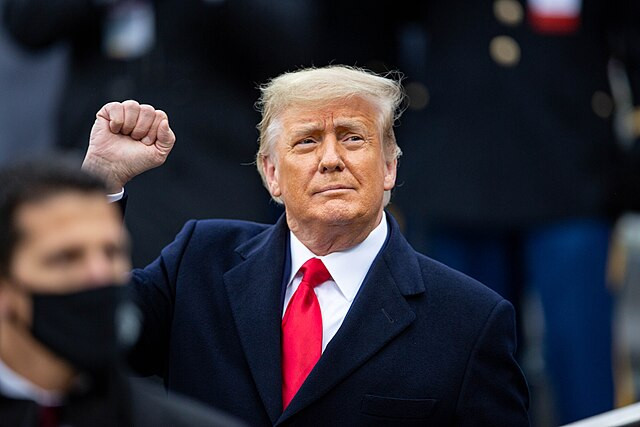Former President Donald Trump has announced plans to ban mortgages for undocumented immigrants, arguing that this measure would help curb rising housing costs in the United States. Trump made this pledge during a speech at the Economic Club of New York, positioning it as a key element of his broader economic strategy as he campaigns for a return to the White House.
Trump's argument hinges on the belief that undocumented immigrants are driving up housing prices by creating additional demand in the market. However, data from the Urban Institute suggests that this demographic represents only a small fraction of the overall mortgage market. According to a recent report, between 5,000 and 6,000 mortgages were issued to holders of Individual Tax Identification Numbers (ITINs) in 2023. These individuals, who are not legally authorized to work in the U.S., use ITINs to pay taxes because they are ineligible for Social Security numbers.
To put these figures into perspective, Equifax reported that approximately 4.3 million first mortgages were originated in 2023, highlighting that the share of mortgages held by undocumented immigrants is minimal. Despite this, Trump insists that barring this group from obtaining home loans will ease housing affordability by reducing demand.
"A flood of people entering the country illegally are pushing up housing costs," Trump claimed during his speech, though he did not provide specifics on how he would implement such a ban. Critics have been quick to point out that the proposed ban targets a "minuscule segment of the market," as noted by David Dworkin, president of the National Housing Conference, who argues that this focus distracts from more pressing issues affecting homebuyers.
Indeed, the former president's proposal has drawn criticism from affordable housing advocates and real estate professionals, who question its effectiveness in addressing the broader housing crisis. The mortgage market for undocumented immigrants is already limited, with ITIN holders facing higher interest rates and stricter lending requirements despite their contributions to the economy through tax payments.
Trump's broader housing plan includes other measures aimed at reducing costs, such as cutting regulations for builders and opening federal land for large-scale housing construction in low-tax, low-regulation zones. These proposals are part of a wider economic agenda that also includes tax cuts for U.S. manufacturers, the creation of a Sovereign Wealth Fund for infrastructure projects, and a national emergency declaration to boost domestic energy production.
In his speech, Trump also made a striking proposal to appoint Elon Musk, the CEO of X (formerly Twitter), as an "Efficiency Czar" to lead a panel focused on eliminating federal waste. This idea, along with his plan to cut corporate taxes to 15% for U.S. manufacturers and eliminate taxes on tips, underscores Trump's emphasis on reducing government intervention and stimulating economic growth.
Despite Trump's confident assertions, the residential construction industry, which is already grappling with a labor shortage, has long advocated for increasing the number of immigrants allowed to work legally in the U.S. to bolster its workforce. A lack of housing supply has been a significant factor driving up prices, and industry experts argue that restricting the workforce could exacerbate the problem rather than solve it.
The proposal to ban mortgages for undocumented immigrants also faces potential legal and logistical challenges. Since the USA Patriot Act of 2001, banks have been permitted to accept ITINs as a form of identification for financial transactions, including home loans. Changing this practice would require significant regulatory adjustments and could face pushback from financial institutions that have found ITIN lending to be a viable, if niche, market.






